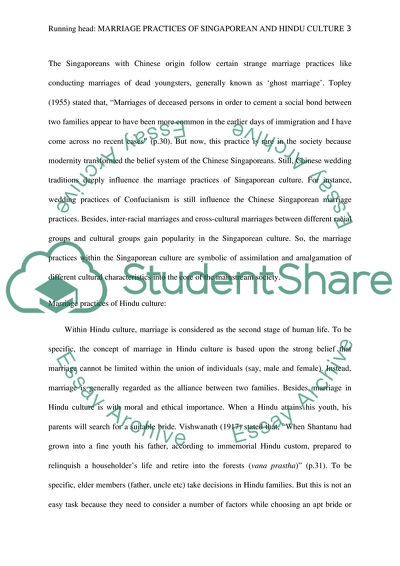Cite this document
(Marriage Practices of Singaporean and Hindu Culture Literature review Example | Topics and Well Written Essays - 1250 words, n.d.)
Marriage Practices of Singaporean and Hindu Culture Literature review Example | Topics and Well Written Essays - 1250 words. https://studentshare.org/sociology/1844742-marriage-practices-of-singaporean-and-hindu-culture
Marriage Practices of Singaporean and Hindu Culture Literature review Example | Topics and Well Written Essays - 1250 words. https://studentshare.org/sociology/1844742-marriage-practices-of-singaporean-and-hindu-culture
(Marriage Practices of Singaporean and Hindu Culture Literature Review Example | Topics and Well Written Essays - 1250 Words)
Marriage Practices of Singaporean and Hindu Culture Literature Review Example | Topics and Well Written Essays - 1250 Words. https://studentshare.org/sociology/1844742-marriage-practices-of-singaporean-and-hindu-culture.
Marriage Practices of Singaporean and Hindu Culture Literature Review Example | Topics and Well Written Essays - 1250 Words. https://studentshare.org/sociology/1844742-marriage-practices-of-singaporean-and-hindu-culture.
“Marriage Practices of Singaporean and Hindu Culture Literature Review Example | Topics and Well Written Essays - 1250 Words”. https://studentshare.org/sociology/1844742-marriage-practices-of-singaporean-and-hindu-culture.


